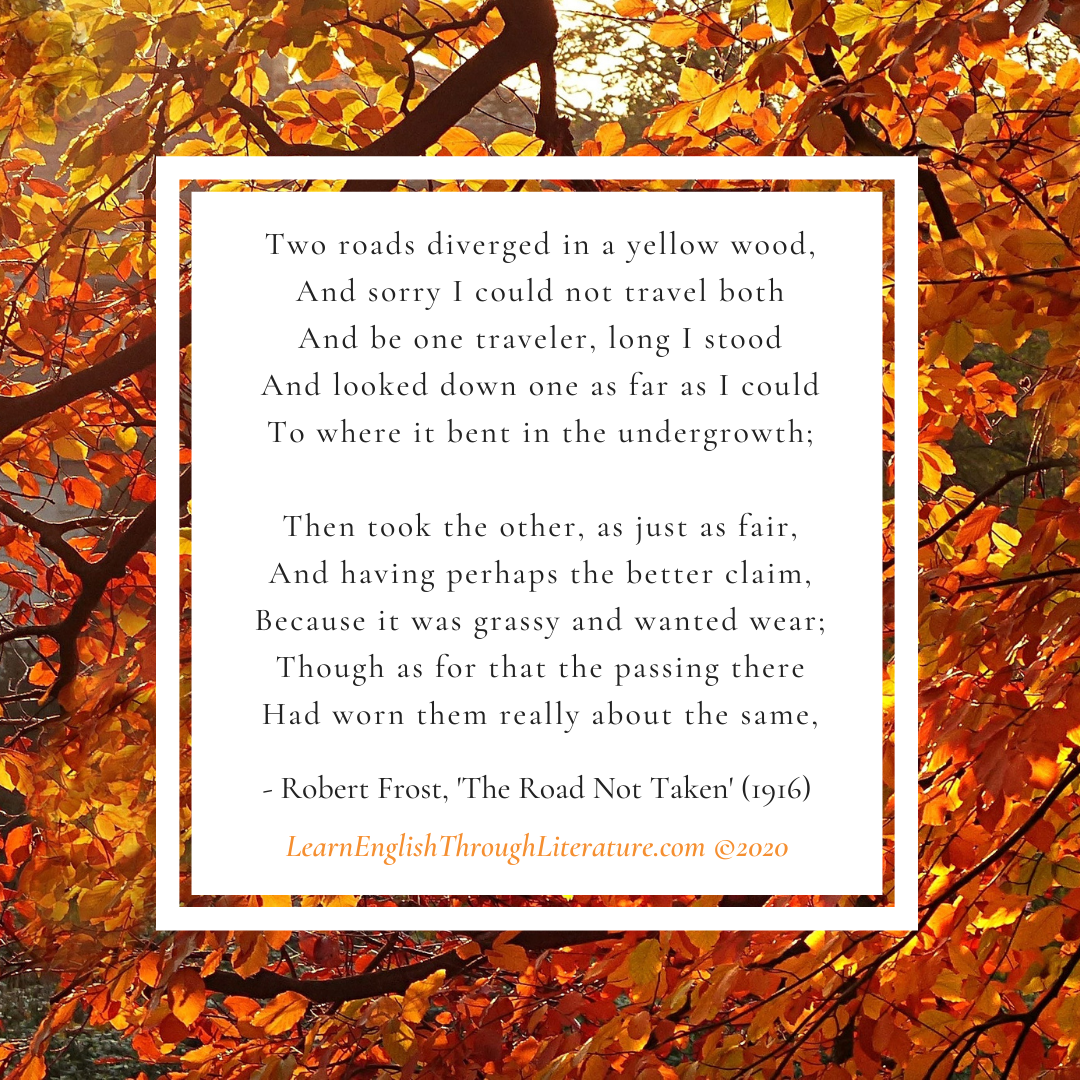As I have mentioned in these short lessons before, I am convinced that one of the best ways to improve your standard of English is to memorise vocabulary in context. What better exercise then than to read some English poems, choose a few that you like, and learn them off by heart!
I would like to introduce one of my favourite poets, Robert Frost (1874-1963) from the USA. He was well-known and loved for his down-to-earth, conversational style and thoughtful phrasing.
🍂 ‘The Road Not Taken’ is perhaps his most famous poem. I have quoted the opening lines in the feature image accompanying this lesson post, so take the opportunity to read them now before we analyse some of the qualities found in the poem’s last stanzas.
📜 Can you guess the topic of this poem?
Although he is describing a physical landscape – a wood, a path among the trees, the golden leaves – the poem as a whole points to the idea that we all have to make choices between different paths in life, even though we might be tempted by the opportunities offered by both. And ultimately, our choices will influence our destiny. We must learn to weigh everything in the balance before making a decision, so that in years to come we will be able to fully value the path we followed.
If those are the thoughts behind the poem’s meaning, then Robert Frost writes them out as if he were speaking aloud, wondering, musing about the past and the future.
Notice how he uses the dash after ‘I’ to good effect, imitating a sigh, in the middle of the last stanza:
I shall be telling this with a sigh
Somewhere ages and ages hence:
Two roads diverged in a wood, and I—
I took the one less traveled by,
And that has made all the difference.
– Robert Frost, ‘The Road Not Taken’ (1916)
When you read this poem aloud, make sure to take a breath of air or sigh at that point. When you do, your own feelings, your thoughts and the speed or pace of your words will align themselves almost naturally with Frost’s rhythm here.
In the second last stanza, he even throws in an exclamation mark – one that emphasises the idea, ‘oh, how I would have liked to go down that other path too!’ Try reading this section with a similar sentiment: with a lingering sense of wonder, happily, dreamily … before some doubts reappear to trouble you in the last line.
And both that morning equally lay
In leaves no step had trodden black.
Oh, I kept the first for another day!
Yet knowing how way leads on to way,
I doubted if I should ever come back.
– Robert Frost, ‘The Road Not Taken’ (1916)
If you like this poem, you might take the time to memorise it, especially as it isn’t long. The lines, word stresses, and pacing will influence and improve your spoken English, even in a small way.
But most importantly of all, a poem like this one connects readers with something common to the human experience – choosing between two good paths in life – a quality that makes it memorable indeed.
Truly, that is what makes all the difference!




